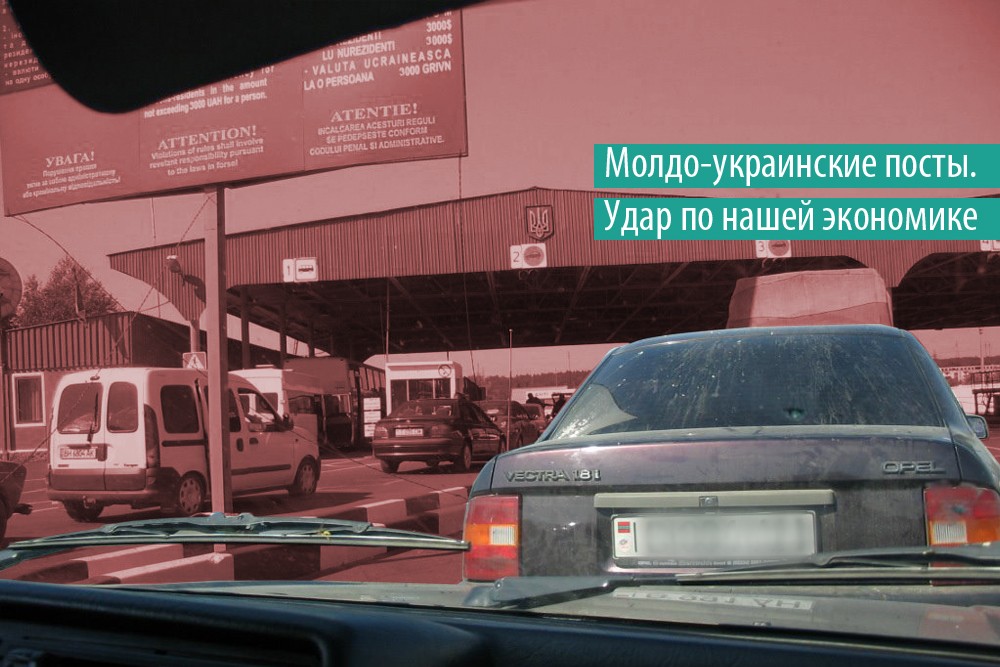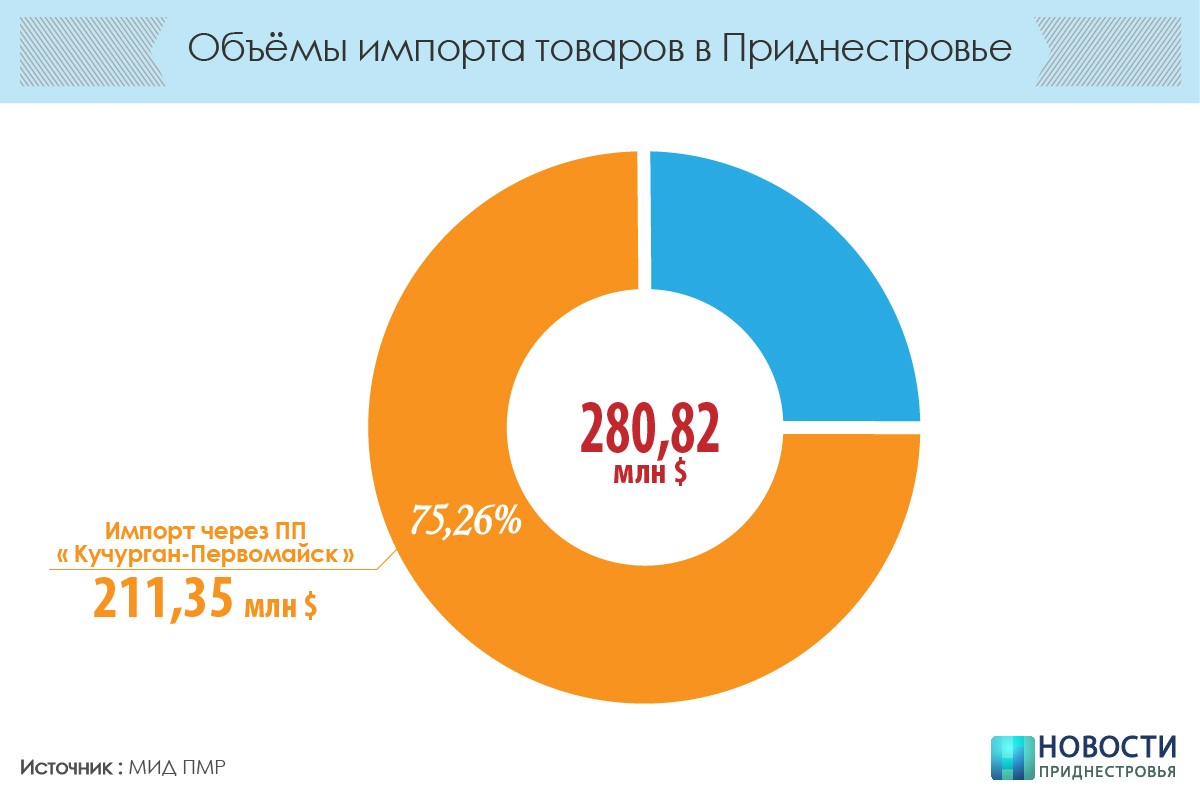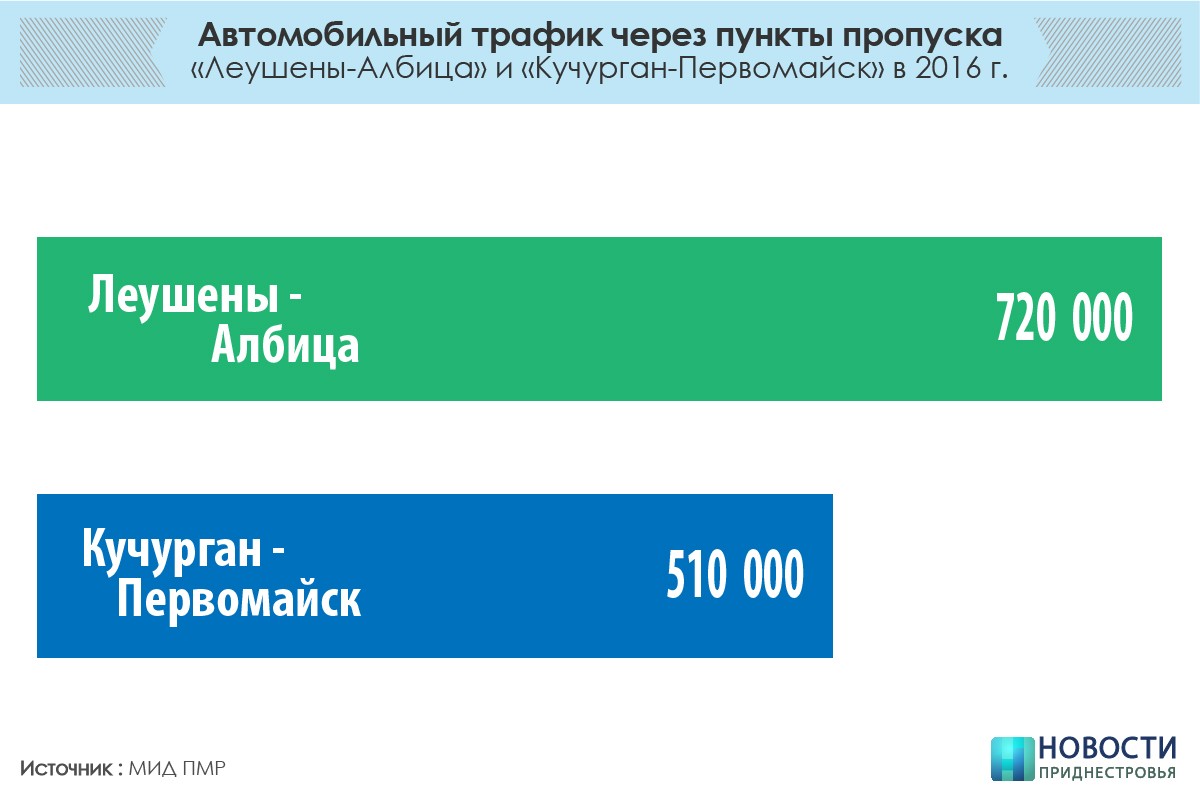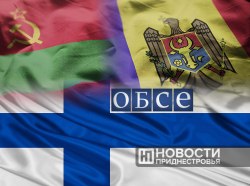With regard to the current situation around the PMR, it should be noted that the issue of the establishment of Moldo-Ukrainian border and customs control over the perimeter of the Pridnestrovian border remains a serious problem. This issue has not been discussed so far in the «5+2» format as the participants of the format are yet to meet.
First, there was a plan to set up only one post at Ukraine's Kuchurgan checkpoint. Now, 13 such checkpoints are supposed to be established. And the situation is continuing to deteriorate.
Earlier, Pridnestrovie's foreign ministry prepared a presentation for the OSCE special representative, Wolf Dietrich Heim, about the possible impact of joint Moldo-Ukrainian border and customs control. At the end of this month new facts and figures have been added to this presentation.
Today we will briefly acquaint our readers with its content. The presentation is quite voluminous, consisting of several distinct sections.
Presentation contents
First comes a background story. The authors recall that the problem dates back to 4 November 2015 when the customs and border services of Moldova and Ukraine signed a protocol to organise joint control at the international border crossing Kuchurgan in Ukraine. Concrete steps, however, have been made this year. The sides have «tasted blood» and as a result, it is anticipated that joint Moldo-Ukrainian control will be established at five international and eight interstate checkpoints. The checkpoint Kuchurgan-Pervomaysk may start work at the end of May. It will work in a test mode for half a year, and after that will start functioning according to the operation flowsheet which Kishinev promised to provide to Pridnestrovie back on 10 March, but has failed to so.
Only Russia is ready for the time being to take into account the PMR's concerns about the forthcoming deployment of these posts. Kishinev and Kiev are acting without taking into account Tiraspol's opinion as the OSCE and Western observers are ignoring this issue as well. The European Union, in the meantime, finances this project.
The second section of presentation focusses on the potential risks Pridnestrovie may face.
These risks are combined into four groups:
(1) restrictions on foreign economic activity;
(2) restrictions on the movement of vehicles;
(3) restrictions on the freedom of movement of citizens;
(4) security risks associated with the emergence of Moldovan border and customs officers outside the area under peacekeepers' control.
The authors note that the posts pose threats to both Pridnestrovian imports and exports. The import risks are as follows: the impossibility of importing phytosanitary and veterinary goods; triple customs control (by Ukraine, PMR and Moldova); restrictions on individual entrepreneurs; restrictions on the importation of socially important goods; risk of potential arrest of Pridnestrovian goods.
About three-quarters of Pridnestrovian imports come through the Kuchurgan checkpoint. One this basis, we can imagine what impact will be made on our economy.
According to preliminary estimates, triple customs control will result in additional transportation costs, ranging from $1.5 to 3 million. The services of Moldovan brokerage companies will additionally cost up to $1.7 million a year. At least $350,000 will have to be spent to pay Moldovan import licences.
Since Moldova has banned the importation of goods subject to phytosanitary and veterinary control (these are separate food categories) through the Kuchurgan checkpoint, the PMR may lose $2.5 million due to a shortfall of customs duties. This may jeopardise the country's food security. If Moldova, however, lifts its ban on imports of such products, it will require over $1 million to buy Moldovan certificates.
Individual entrepreneurs
As it has already been pointed out, Pridnestrovian individual entrepreneurs may encounter great difficulties in carrying out foreign economic activities. Under the PMR's law, $1,000 worth of goods can be imported undeclared. Moldovan legislation limits this amount to € 300, and it is obligatory to register as a business entity in Moldova in order to conduct import and export transactions. This, in turn, requires Moldovan citizenship and Moldova-issued health insurance.
The authors quote the following figures: about 20,000 individual entrepreneurs are engaged in foreign economic activities in Pridnestrovie. If they lose jobs, their families — about 55,000 people — will also be affected. The country's budget losses due to a shortfall of patent fees may amount to $7 million. Another $9 million is estimated to be required for unemployment allowances.
Change of logistics
Kishinev argues today that the deployment of Moldovan customs officers in Ukraine will facilitate exports from Pridnestrovie. However, in order to obtain export documents, Pridnestrovian entrepreneurs will have to go to the customs office in Causeni, as they do now. There will be no improvement of export logistics. Moreover, as the authors have calculated, the route will become 13 km longer and will run along the shattered Odessa motorway.
Everyone's losses
If all the alleged losses incurred by Pridnestrovie's economy due to the establishment of joint Moldo-Ukrainian border control are summed up, they may amount to $38.5 million a year, or 6% of the country's GDP. This figure was announced by President Krasnoselsky during his news conference in March.
Besides, there are also the so-called intangible risks. For example, the Moldo-Ukrainian posts may affect the free movement of citizens as they will also perform a migration control function. There is a danger that our citizens will face the same pressure as is the case at the Kishinev airport.
The problem of politically motivated criminal cases Moldova has brought against over 180 Pridnestrovians cannot be forgotten either. They may be detained at the Moldo-Ukrainian posts.
The owners of cars with Pridnestrovie-issued number plates are likely to face problems at the border. Pridnestrovians may be forced to get customs clearance for imported cars at Moldovan customs offices.
The authors underscore the establishment of Moldo-Ukrainian border and customs post on the Pridnestrovian border violates many agreements of the negotiation process, including the Berlin Protocol signed in June 2016. The joint control Moldova and Ukraine are planning to organise is an unreasonable, redundant and, at the same time, politically-charged measure.
Tiraspol thinks it is time viable alternatives were discussed. For example, Pridnestrovie has put forth an initiative to exchange information in the field of customs statistics. This initiative can be refined.
Unfortunately, Pridnestrovie's proposals remain unheeded today, including by most of the «5+2» format participants.
Pavel Uvarov.











